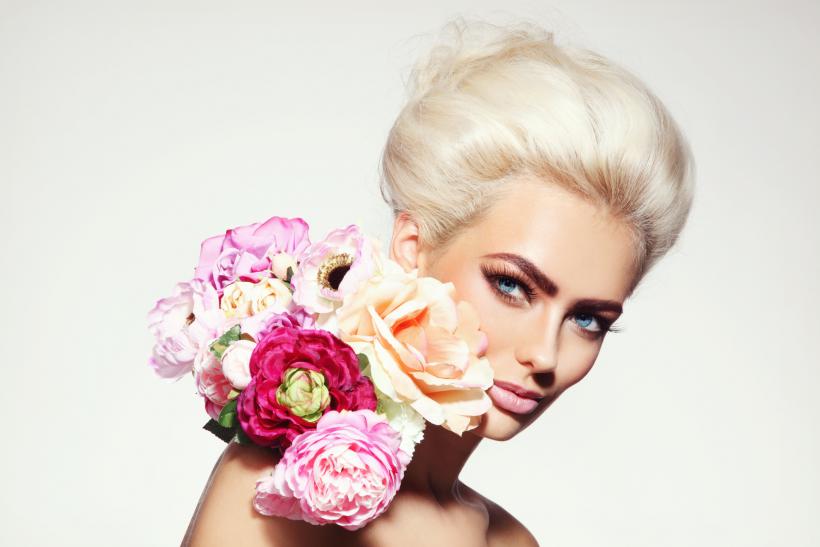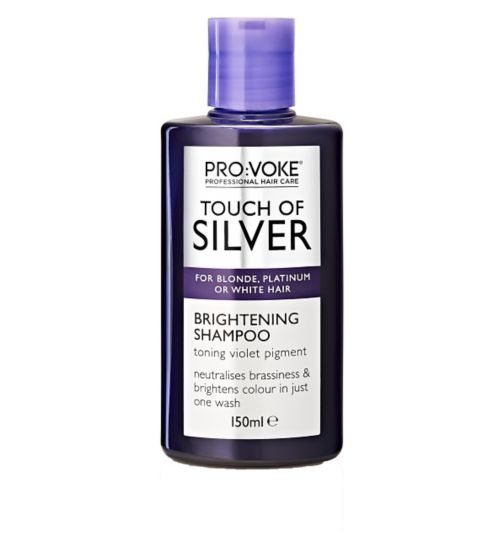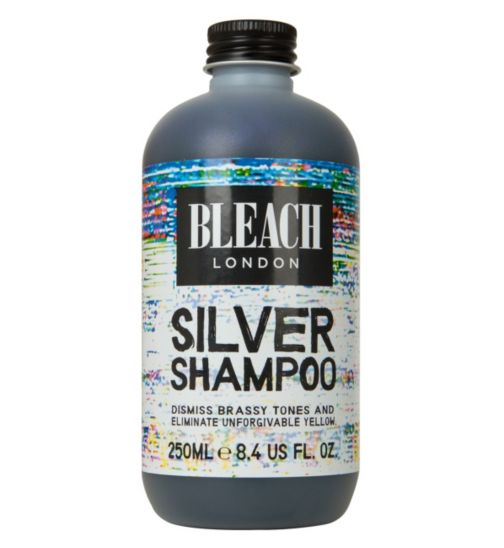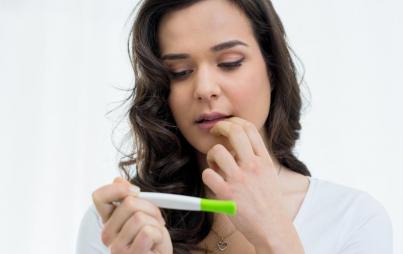
image credit: Thinkstock
Being a “strong” and “empowered” woman is so hot right now. Not that that’s a bad thing, I’m definitely for it, but the commodification of pop feminism is undeniably rife. I’ve been a woman for 23 years and a feminist for probably about 22 of them (got to allow a baby one year of blissful ignorance), but I have to admit, there is one area in my life where I’m not as strong-willed and demanding as I know I truly should be. Not in my relationships, nor in my job, but in my hair care. I’m talking purple shampoo and the unhealthy relationship I have with it.
I’m coming up on my blonde-iversary, and my my, what a year it has been. Breakage, damage, roots, I’ve done it all. I accept these as a part of my new blonde identity.
But one part of being blonde I really can’t tolerate is brassiness — the warm, dirty yellow tones of hair that sneak in and disrupt your ice queen vibes.
Any fake blonde (or clever hair person in general) will tell you that color theory dictates that to detract from one color, you must use the one opposite on the color wheel. For warm yellow, that’s cool purple. Thus, purple-toned hair products become any fake blonde’s MO.
 Being British and poor, my obvious choice was the Pro-Voke Touch Of Silver Brightening Shampoo. It’s a drugstore staple, easy to find and as old as the hills (I think it started life as a blue-rinse top up for glam grandmas). The deep, rich purple color is reminiscent of a king’s velvet cloak or similar.
Being British and poor, my obvious choice was the Pro-Voke Touch Of Silver Brightening Shampoo. It’s a drugstore staple, easy to find and as old as the hills (I think it started life as a blue-rinse top up for glam grandmas). The deep, rich purple color is reminiscent of a king’s velvet cloak or similar.
Is it effective? Most definitely. Sometimes a bit too effective: the most damaged and thus “porous” (I swear being blonde has, like, doubled my vocabulary) bits of my hair suck this color up like greedy pigs in a trough, leaving them not cool blonde, but decidedly purple in tone. The problem is, once you’ve been stuck in the vicious cycle of bleaching and “doing your roots” and toning for a while, the “porosity” (see!) of your hair bundle as a whole is massively different.
My roots, fresh from bursting out of my head and only one bleach deep, are in quite good nick and therefore don’t take so intensely to the toning shampoo. The problem is, my roots are the place where my hair is the brassiest, as it’s the most recently bleached. It’s all such a complicated mess.
The problem is, while my roots are taking in a little bit of the purple tone, my ends are lapping it up like crazy. Which means over time, the shampoo is making my hair less and less uniform in tone, even as it makes it, on the whole, less brassy. So: do I want neutral uniformity, or cool unevenness? Truly, it is Sophie’s choice.
And while we’re on the subject of my s.o.’s (shampooing other’s) many faults, can we talk about dryness? The ProVoke is a super sudsy, sulphate laden formula, similar to dish soap. While it’s certainly super clarifying, for a product designed for those who have already blasted their hair with bleach, you’d expect more cognizant formulation.
This problem is not unique to ProVoke, either.
 My two other forays into tone correcting (Bleach London and Lee Stafford) have yielded similar results. They, too, both contain high levels of sulphates. But, then, so do all the shampoos I use (I know, I know, I’m a sinner). The purple guys are more drying than anything else, which leads me to suspect that the actual purple pigment is what is causing my straw-like, brittle strands. Aside from the masses of bleach, obviously.
My two other forays into tone correcting (Bleach London and Lee Stafford) have yielded similar results. They, too, both contain high levels of sulphates. But, then, so do all the shampoos I use (I know, I know, I’m a sinner). The purple guys are more drying than anything else, which leads me to suspect that the actual purple pigment is what is causing my straw-like, brittle strands. Aside from the masses of bleach, obviously.
So, what do I do? Do I accept that no relationship is perfect, and that as my shampoo accepts all my faults, so should I its? Or do I stand up and demand more? After all, I’m yet to venture into the world of extremely expensive, sulphate free, fancy ingredient-ed toning shampoos…







